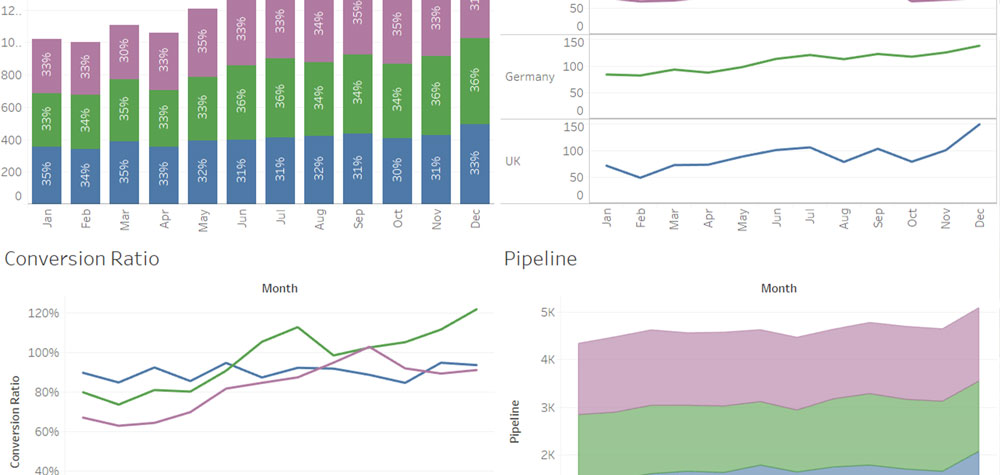Personalizing Your Events with AI: Software Suggestions and Strategies
In today's fast-paced world, event organizers are constantly seeking innovative ways to enhance attendees' experiences and simplify their planning tasks. The advent of Artificial Intelligence (AI) has brought about groundbreaking changes across various industries, and the events industry is no exception.
AI has the power to transform the way events are organized, making them more personalized and efficient. In this blog, we'll delve into how AI can be harnessed by event organizers to not only make their jobs easier but also create unforgettable experiences for attendees.
Understanding Event Personalization
Before we explore the ways AI can assist event organizers, it's crucial to grasp the concept of event personalization. Event personalization involves tailoring the event experience to meet the unique preferences, needs, and interests of each attendee.
It moves beyond the one-size-fits-all approach and strives to create a truly individualized and engaging experience for every participant.
Benefits of Event Personalization
Event personalization offers numerous advantages, including:
-
Increased Attendee Satisfaction: Personalized experiences leave attendees feeling valued and more satisfied with the event.
-
Higher Engagement Levels: When content and interactions are tailored to their interests, attendees are more likely to engage actively.
-
Improved Brand Loyalty: Personalized experiences can foster stronger connections between attendees and event organizers or sponsors, leading to increased brand loyalty.
-
Enhanced Event ROI: Personalization can boost event return on investment by delivering greater attendee value.
Leveraging AI for Attendee Data Analysis
AI can assist event organizers in analyzing attendee data to gain valuable insights into their preferences and behaviors. It can help show you:
Predictive Analytics: AI algorithms can comb through historical data to predict attendee behavior and preferences. This enables organizers to tailor event content and offerings to match attendee expectations better.
Personalized Recommendations: AI-powered recommendation engines can suggest specific sessions, workshops, and networking opportunities based on each attendee's profile. Attendees are more likely to engage with content that aligns with their interests, improving their overall event experience.
Keep reading to see all the different ways event organizers can use AI to personalize their events as well as recommended software for each category.

1. Enhancing Marketing and Communication
AI offers significant improvements in event marketing and communication strategies, enabling event organizers to reach their target audience more effectively.
Chatbots and Virtual Assistants: AI-powered chatbots can efficiently handle attendee inquiries and provide instant responses. Virtual assistants can help with various event-related tasks, such as registration, agenda planning, and answering frequently asked questions, reducing the workload on organizers.
Personalized Email Campaigns: AI can segment attendees based on their preferences and behavior, allowing event organizers to send highly personalized email campaigns. This not only increases open rates but also boosts attendee engagement with event content.
Recommended Software for Chatbot AI
Several event management software platforms offer AI chatbots, which are invaluable for providing automated, real-time responses to attendee inquiries, enhancing engagement, and streamlining communications. Here are some notable options:
-
Hubilo: Known for its comprehensive virtual event platform, Hubilo offers an AI-powered chatbot feature for attendee engagement and support. Visit Hubilo.
-
Intercom: Known for its conversational relationship platform, Intercom offers a powerful chatbot for websites that can automate customer support, lead generation, and engagement. Visit Intercom
-
Drift: Specializes in conversational marketing and sales, Drift's chatbots help in qualifying leads, booking meetings, and providing real-time support. Visit Drift
-
ManyChat: Focuses on creating chatbots for social media platforms and websites, particularly useful for marketing and customer engagement. Visit ManyChat
-
Zendesk Chat: Part of the Zendesk customer service platform, Zendesk Chat offers customizable chatbots to improve customer service and engagement. Visit Zendesk Chat
-
Chatfuel: A leading chatbot platform for Messenger, Chatfuel allows businesses to create AI chatbots for Facebook Messenger and websites. Visit Chatfuel
-
Tidio: Combines live chat and AI chatbot features, making it easier for businesses to engage customers, answer queries, and increase sales. Visit Tidio
2. Streamlining Event Logistics
Managing the logistics of an event can be a complex endeavor, but AI can simplify the process in several ways.
Predictive Maintenance: AI can monitor event equipment and facilities to predict maintenance needs, reducing the risk of technical issues during the event. This ensures a smooth experience for attendees.
Attendee Flow Optimization: By analyzing attendee movement patterns, AI can suggest layout changes to optimize traffic flow within the event venue. This prevents overcrowding and ensures a seamless experience for all participants.
Recommended Software for Attendee Management
AI technology is increasingly being integrated into event management to optimize attendee flow and enhance the overall event experience. Various software solutions are available that leverage AI to provide insights and tools for better attendee management. Here are some examples:
-
InEvent: This platform utilizes AI to offer data-driven recommendations for networking and content tracks, elevating the event experience by making it more personalized. Visit InEvent.
-
Gevme: Gevme focuses on using AI to improve attendee experiences by offering unified event data and centralized event content management. Visit Gevme.
-
Classiebit: This software highlights the use of predictive analytics in event planning. Predictive analytics can help anticipate potential issues like low attendance or technical difficulties, enabling planners to take proactive measures. Visit Classiebit.
-
SpeakMe.AI: SpeakMe.AI offers AI-powered chatbots, virtual assistants, and automated scheduling systems specifically designed for event planners. Vist SpeakMe.AI.
-
Time.ly: They discuss the use of AI for quick content translation at events, ensuring that all attendees can understand the event's content without the need for translators or interpreters. Visit Time.ly.

3. Real-time Event Monitoring and Feedback
AI-driven technologies provide real-time monitoring and feedback during events, enabling organizers to maintain a high standard of event quality. For example,
Facial Recognition: Facial recognition technology can be employed for attendee check-in, enhancing security and reducing wait times at registration.
Sentiment Analysis: AI can analyze social media posts and attendee feedback in real time to gauge attendee sentiment. Organizers can use this data to make necessary adjustments and address concerns promptly, ultimately improving the overall event experience.

4. Post-event Analytics and Reporting
The benefits of AI extend beyond the event itself, proving invaluable in post-event activities. AI can analyze post-event surveys, social media mentions, and other data sources to provide insights into the event's success. Organizers can gain a deeper understanding of attendee preferences and areas for improvement.
Event organizers can also use AI to calculate the return on investment (ROI) for the event by tracking expenses and revenue. This data is crucial for evaluating the event's financial success.
Recommended Software for Reporting
If you're looking for AI software to enhance your reporting capabilities, there are several options available that cater to different needs, such as data analysis, report generation, and data visualization. Here's a summary of some AI tools that you might find useful:
-
Tableau: A data visualization platform that allows users to interact with their data and create reports without the need for coding knowledge. Visit Tableau
-
Microsoft Power BI: A business intelligence platform enabling users to sort, analyze, and visualize data, and share insights across the organization. Visit Microsoft Power BI
-
Amazon Polly: A cloud-based text-to-speech service offering a wide range of voices and languages, useful for converting text reports into spoken words. Visit Amazon Polly
Challenges and Considerations When Using AI
While AI offers numerous advantages, event organizers must also be aware of potential challenges and considerations:
-
Data Privacy: Ensuring that attendee data is handled responsibly and in compliance with data privacy regulations is crucial. Event organizers must prioritize data security and transparency.
-
Integration: Event organizers should carefully consider how AI systems will integrate with existing event management tools and processes. Seamless integration is essential for maximizing the benefits of AI.
Conclusion
In conclusion, Artificial Intelligence has the potential to revolutionize event planning by making it more personalized and efficient. Event organizers who harness the power of AI not only make their jobs easier but also create unforgettable experiences for attendees.
While challenges exist, the advantages of embracing AI in event management far outweigh the drawbacks. It's time to embrace AI and elevate event personalization to new heights, ensuring that every attendee leaves with lasting memories and a sense of appreciation for the event.








